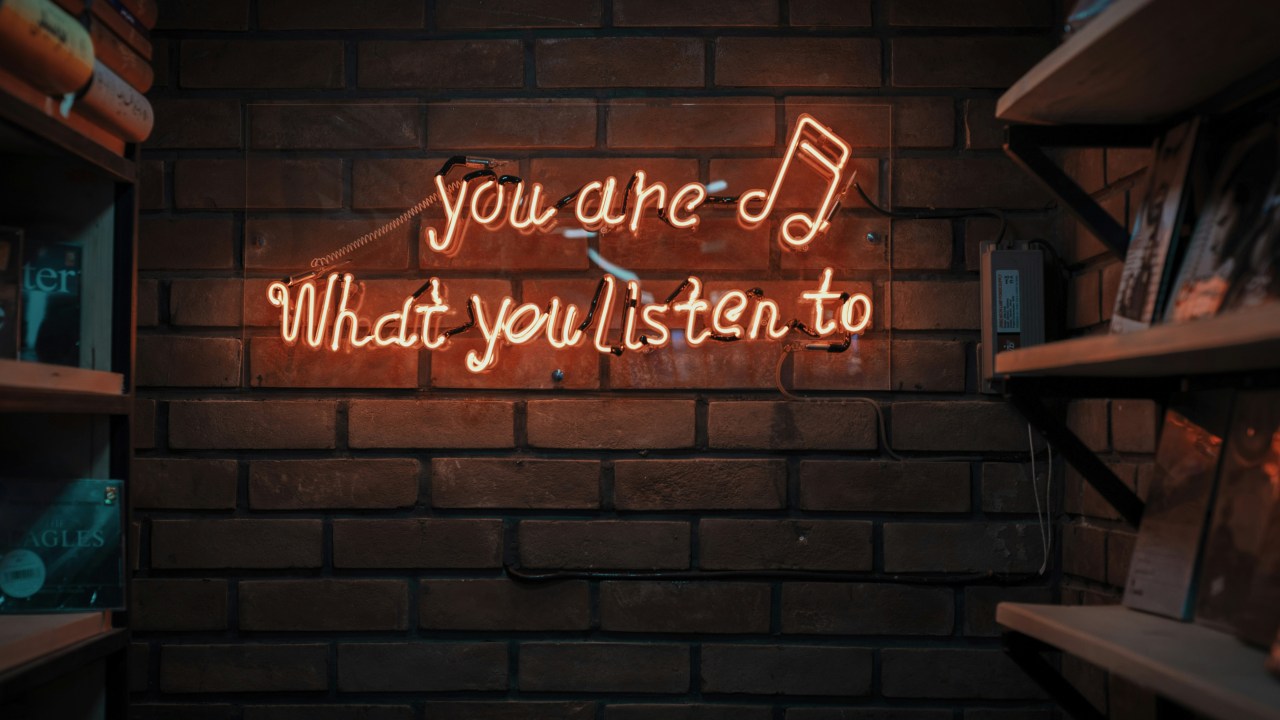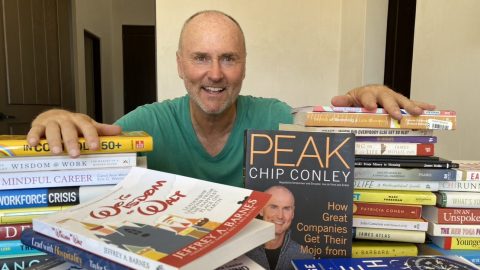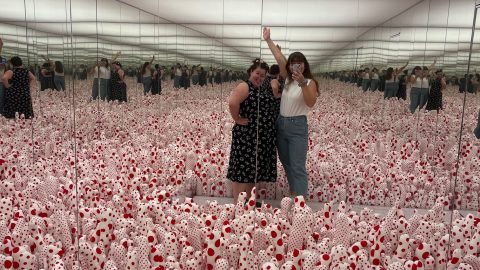
According to Edison Research, about 100 million Americans listen to at least one podcast every week, and regular podcast listeners average a bit over 8 episodes a week.
Full confession: I’m one of that 100 million, and my average is more like 20 episodes a week.
I have over 100 titles in my pod queue, including futurist content (e.g., Future Now from the Institute for the Future), museum stalwarts (Museum Confidential from the Philbrook Museum of Art), and delightful oddballs (Perfume on the Radio from The Institute for Art and Olfaction in Los Angeles.) With this post I’m going to share a few of my recent favorites, leaning into podcasts I hope may provide useful and timely information, or help provide inspiration and comfort, in the face of coming challenges.
The newest addition to my podcast feed is Making the Museum, hosted by Jonathan Alger, managing partner and cofounder of C&G partners, which complements C&G’s newsletter of the same name. This is one of the few podcasts I’ve found that tackles the economics of running a museum. (When guest Amy Kaufman, in The Money Pie Chart episode, said “Nonprofit is a purpose, it’s not a business model,” I actually cheered.) Jonathan has recruited a very interesting variety of guests—museum practitioners, consultants, and experts from adjacent sectors. I look forward to hearing what curator Jennifer Posey (John and Mable Ringling Museum of Art) says on what the circus can teach museums about making better exhibitions. 🤔
Next most recent is Humanities in Action, “about the work being done today to create a more empathetic and connected future.” The podcast is produced by Humanities Tennessee, which brought me to Memphis, Nashville, and Knoxville to teach foresight workshops as part of their Shared Futures Lab program*. Some of the episodes tackle issues like storytelling, immigration, and neurodiversity. Some are museum-specific, for example a profile of the National Civil Rights Museum at the Lorraine Hotel in Memphis. (*Re: Shared Futures Lab: I love love love this program so much, and wish every state had a comparable initiative. Now my stretch goal is to teach foresight workshops in every state of the US, to support such efforts. Let me know if you’re interested… futureofmuseums (at) aam-us.org)
One of the Tennessee Workshop attendees recommended I Was Told There Would Be Snacks, a podcast from the Tennessee Nonprofit Network “questioning tired ways nonprofits and funders do business, and shedding light on bold new practices in our field.” The episode Epic Grant Writing Fails will spark empathy from anyone who has tried their hand at grant writing, an activity the host characterized as “not terribly fun, like a blood clot, not something you look forward to, but you have to do to make some money.” Another great episode, Nonprofit Sustainability is Not a Thing, features the marvelous nonprofit gadfly Vu Le, author of the blog Nonprofit AF.
Some of my favorite podcasts provide context for the things I’m seeing in my scanning and help me make sense of the world. I highly recommend Hidden Brain, in which host Shankar Vedantam interviews researchers, academics, and historians to shed light on “the unconscious patterns that drive human behavior and questions that lie at the heart of our complex and changing world. I found two recent episodes to be particularly timely:
- In Sitting with Uncertainty, researcher Dannagal Goldthwaite Young’s explanation of how our response to uncertainty shapes our political beliefs helped me make sense of the recent election results.
- In Fighting Despair, psychologist Jamil Zaki shared some practical strategies for cultivating hope when we feel disillusioned and distrustful of the world.
My scanning is filled with anxiety-provoking projections regarding the next four years in the US, war across the globe, and the potential for yet another global pandemic. For general stress relief, I recommend this series of guided meditations from Tara Brach, who synthesizes her work as a psychotherapist and a Buddhist teacher into mindfulness training. And if stress is keeping you up at night, consider the Nothing Much Happens podcast, featuring short pieces of “conflict free fiction,” designed to curb your racing brain, quiet obsessive thoughts, and lull you to sleep.
And a word about supporting the work of creators. Some podcasts are funded by for-profit businesses, buoyed by grant funding, or bolstered by ad revenue. But some also depend on individual support. Many great platforms for “free” content have disappeared in recent years because they are underfunded public goods. If you find yourself listening to a podcast on a regular basis, consider making a donation if that is part of its funding model.
Warmest regards from the future,
Elizabeth
Elizabeth Merritt
Vice President, Strategic Foresight and Founding Director, Center for the Future of Museums








